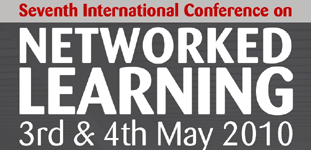

An Empirical Study: The Implementation of a Virtual Learning Environment and ePortfolio
Thomas Connolly, Carole Gould, Tom Hainey
University of the West of Scotland, Paisley, United Kingdom
Brian Boyle, Stuart Waugh
EKGTA Ltd, Glasgow, United Kingdom
Abstract
The use of educational technologies to support learning are utilised across many parts of education and training and institutions have invested heavily in technologies such as Virtual Learning Environments and ePortfolios. The advantages that these technologies provide have meant that eLearning is now supplementing and in some cases replacing traditional (face-to-face) approaches to teaching and learning and replacing the traditional paper portfolios. However, there is less evidence of the uptake of these technologies within private vocational training organisations. The purpose of this paper is to give greater insight into the potential use of educational technologies within private vocational training companies, stimulate further research into this area, and lay the foundations for a model to aid successful implementation.
The paper aims to answer a number of questions within the context of one particular private vocational training company: (i) can a VLE supplement or in some instances replace specific elements of vocational training; (ii) can paper-based portfolios be replaced with ePortfolios; (iii) is the use of educational technologies the way forward for private vocational training companies; and (iv) ultimately can VLEs and ePortfolios be successfully implemented and used within private vocational training companies? Very few case studies have been carried out in this area; most have focused on higher/further education institutions or vocational training colleges.
The authors conclude that the research demonstrates that this area could offer a rich source of future research, and that educational technologies could potentially aid private training companies in the training of apprentices. Much of the work carried out in this sector is hands-on and on-the-job training but it also consists of a substantial knowledge element that would lend itself well to the use of eLearning. However, it is early days to design a model but as the empirical data grows this should become possible. At this stage the authors suggest, tentatively, that eLearning can support and in some instances replace some elements of the vocational programme. The authors acknowledge that the practical element would be very difficult to replace with technology but it could be supplemented through other tools such as multimedia. Educational technologies offer the opportunity to open up learning in the vocational training sector, rather than restricting it to the traditional 9-5 scenario. If buy-in from end-users can be obtained and trainers can learn to appreciate the value that could be gained from educational technology then their use could diffuse throughout the vocational training
| About NLC | Welcome Messages| Acknowledgwments | Conference Proceedings| Keynote Speakers| Index of Presenting Authors| Contact |